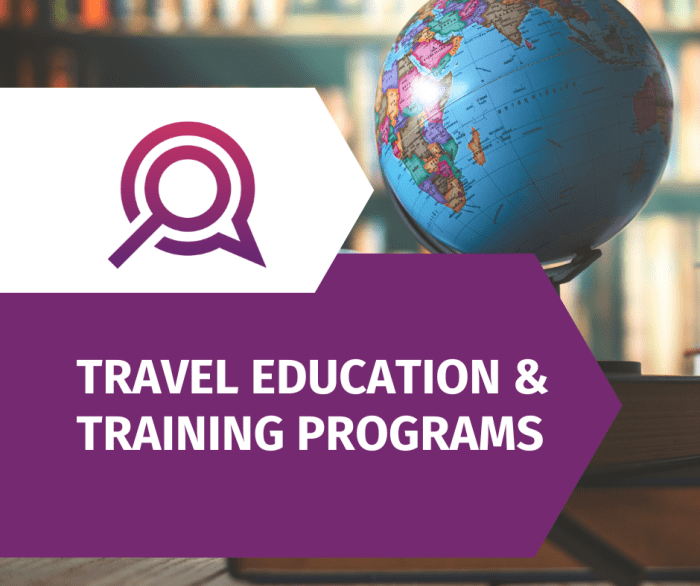Travel Tourism & Hospitality Management A Comprehensive Overview
Travel tourism and hospitality management encompasses a vast and dynamic field, constantly evolving with emerging trends and innovative strategies. This overview explores the key facets of this multifaceted industry, from understanding the latest trends shaping the global travel landscape to examining the crucial role of hospitality management in enhancing guest experiences. It also delves into the challenges and opportunities surrounding tourism development, highlighting the importance of sustainability and community engagement.
The presentation will investigate the impact of technology on travel experiences, comparing and contrasting the preferences of various demographics. Different hospitality business models, from hotels to vacation rentals, will be analyzed. The critical role of staff training in achieving excellent customer service will also be examined, along with the economic impact of tourism in specific regions. Finally, the importance of sustainable tourism practices and government policies in promoting responsible tourism will be addressed.
Travel and Tourism Industry Trends
The global travel and tourism sector has undergone significant transformations in recent years, driven by evolving consumer preferences, technological advancements, and a growing awareness of sustainability. This dynamic environment necessitates a continuous adaptation for businesses to thrive and meet the demands of a diverse and increasingly informed traveler base.
Significant Trends Impacting the Global Travel and Tourism Sector (Past Five Years)

Several key trends have shaped the travel and tourism industry over the past five years. These trends include a heightened emphasis on personalization, the rise of digital platforms and mobile-first experiences, and a growing demand for authentic and immersive travel experiences. The pandemic, while challenging, also accelerated certain existing trends and forced businesses to innovate and adapt.
- Increased focus on personalization: Travelers are seeking tailored experiences, from curated itineraries to customized recommendations. This has led to the rise of AI-powered travel agents and personalized travel platforms. For instance, companies like Airbnb and Booking.com use data to provide targeted recommendations based on past bookings and user preferences.
- Rise of digital platforms and mobile-first experiences: Digital platforms have become integral to the travel process, from booking flights and accommodations to researching destinations and connecting with local communities. Mobile apps are simplifying and streamlining the entire travel journey, from booking to in-destination services.
- Demand for authentic and immersive experiences: Travelers are increasingly seeking experiences that connect them with the local culture and traditions. This has fueled the growth of cultural tourism, community-based tourism, and immersive tours.
- Impact of the pandemic: The COVID-19 pandemic drastically impacted travel patterns, highlighting the importance of flexibility and adaptability. The shift towards remote work and the rise of digital nomads have also changed the nature of travel.
Evolving Role of Technology in Shaping Future Travel Experiences
Technology continues to revolutionize the travel industry, creating new opportunities for seamless and personalized experiences. The future of travel is increasingly interconnected with digital tools, allowing for greater convenience and customization.
- AI-powered travel assistants: Artificial intelligence (AI) is playing an increasingly important role in travel planning, from suggesting optimal itineraries to providing personalized recommendations. AI-powered chatbots can answer questions, provide instant support, and facilitate bookings.
- Virtual and augmented reality (VR/AR) experiences: VR/AR technologies are enabling travelers to explore destinations virtually before they arrive. This allows them to experience the atmosphere and culture of a place, facilitating informed decision-making.
- Internet of Things (IoT) integration: IoT-enabled devices are enhancing the travel experience by providing real-time information and personalized services, from smart hotels to connected transportation systems.
Emerging Sustainable and Responsible Travel Practices
The growing concern for environmental sustainability is driving the adoption of responsible travel practices. These practices encompass a wide range of initiatives that aim to minimize the negative impact of tourism on the environment and local communities.
- Eco-tourism: Eco-tourism initiatives emphasize minimizing the environmental impact of travel through responsible practices such as reducing carbon emissions, conserving natural resources, and supporting local communities. Examples include ecotourism tours that focus on conservation and sustainable development.
- Community-based tourism: This approach directly supports local communities by employing local guides, utilizing local businesses, and ensuring a fair share of economic benefits to the region.
- Carbon offsetting and reducing travel emissions: Many travelers are actively offsetting their carbon footprint by investing in projects that reduce greenhouse gas emissions. Airlines are also implementing strategies to reduce their carbon footprint.
Travel Preferences of Different Demographics, Travel tourism and hospitality management
Different generations exhibit distinct travel preferences. Understanding these variations is crucial for businesses to cater effectively to diverse customer segments.
| Demographic | Key Travel Preferences | Example |
|---|---|---|
| Millennials | Experiential travel, social media-driven research, budget-consciousness, and a desire for authenticity. | Seeking unique cultural experiences, using social media for recommendations, and prioritizing value for money. |
| Gen Z | Authenticity, sustainability, and social impact are crucial factors in their travel decisions. They value experiences that resonate with their values and interests. | Seeking out sustainable and ethical travel options, supporting local communities, and prioritizing social responsibility. |
| Baby Boomers | Comfort, familiarity, and established destinations. They appreciate well-structured itineraries and convenient travel arrangements. | They prefer well-known destinations, reliable services, and a high level of comfort. |
Hospitality Management Strategies: Travel, Tourism, And Hospitality Management

Source: edu. .in
Effective hospitality management hinges on strategies that prioritize guest satisfaction and operational efficiency. A strong focus on understanding guest needs and tailoring services accordingly is paramount. This approach, coupled with a well-defined business model, ultimately determines the success of any hospitality venture.
Successful hospitality businesses understand that guest satisfaction is not just about providing basic amenities but creating memorable experiences. This necessitates a proactive approach to anticipating and addressing guest needs, from pre-arrival communication to post-departure follow-up. Furthermore, a robust understanding of the specific target market is crucial for tailoring services and experiences that resonate with their preferences.
Guest Satisfaction Enhancement Strategies
Creating a positive and memorable experience for guests is fundamental to successful hospitality management. This involves proactive measures to anticipate guest needs and exceed expectations at every touchpoint. Personalized service, attentive staff, and a clean and well-maintained environment contribute significantly to guest satisfaction. Effective communication, both pre- and post-stay, plays a vital role in fostering positive guest relationships. Providing opportunities for guest feedback and actively addressing concerns further enhances the guest experience.
Key Components of a Successful Hospitality Business Model
A well-defined business model is crucial for any hospitality venture’s long-term success. Key components include a clear understanding of the target market, competitive analysis, a robust financial plan, and effective operational procedures. A strong brand identity, reflecting the unique value proposition, is essential for attracting and retaining customers. A detailed understanding of the local market and its specific requirements is also essential to ensure success. Furthermore, a reliable supply chain and management of resources are key factors. Effective risk management strategies, including contingency plans for unforeseen circumstances, also contribute to a robust model.
Different Hospitality Business Models
Various business models exist within the hospitality sector, each with its strengths and weaknesses. Hotels, with their standardized services and diverse room types, cater to a broad range of needs. Resorts, emphasizing leisure and recreational activities, appeal to guests seeking relaxation and entertainment. Vacation rentals, offering more space and privacy, are attractive to families and groups seeking greater independence. Each model presents unique opportunities and challenges, requiring careful consideration of the target market and operational requirements. Hotels, resorts, and vacation rentals each require different operational strategies, reflecting the varied demands of their respective target demographics.
Importance of Staff Training and Development
Staff training and development are critical for improving customer service and overall operational efficiency. Well-trained staff are better equipped to anticipate guest needs, handle complaints effectively, and provide a consistently high level of service. This results in a positive guest experience and contributes to a strong brand image. The table below highlights the significance of staff training in enhancing customer service:
| Training Area | Importance |
|---|---|
| Product Knowledge | Guests expect staff to be knowledgeable about the products and services offered. |
| Customer Service Skills | Effective communication, empathy, and problem-solving skills are essential. |
| Conflict Resolution | Handling complaints and disputes professionally is crucial. |
| Cultural Sensitivity | Understanding and respecting diverse cultural backgrounds is vital. |
| Health and Safety Protocols | Ensuring a safe and secure environment for guests is paramount. |
Tourism Development and Management

Tourism development necessitates a nuanced approach that considers both the economic benefits and the environmental and social impacts. Effective management strategies are crucial for fostering sustainable growth and mitigating potential drawbacks. Balancing the needs of tourists with the well-being of local communities is paramount for long-term success.
Challenges and Opportunities in Various Regions
Tourism development faces unique challenges and presents varied opportunities across the globe. Developing nations often grapple with infrastructure limitations, inadequate skilled labor, and the need for robust regulatory frameworks. Developed regions, while potentially possessing a more sophisticated tourism infrastructure, might confront issues like overtourism and the need to diversify their offerings. Emerging destinations, on the other hand, often present considerable growth potential but face the challenge of balancing rapid development with environmental protection. Opportunities exist in leveraging unique cultural heritage, natural beauty, and developing niche tourism segments to attract discerning travelers.
Sustainable Tourism Practices in Costa Rica
Costa Rica exemplifies sustainable tourism practices through its dedication to environmental conservation. The country’s commitment to preserving biodiversity and promoting ecotourism is evident in its national parks and protected areas. Sustainable practices include minimizing environmental impact, supporting local communities, and promoting cultural understanding. For example, many eco-lodges prioritize using renewable energy sources, minimizing waste, and engaging local artisans in the tourism supply chain. This approach ensures that tourism contributes to the long-term well-being of the environment and local communities.
Importance of Community Engagement
Community engagement is essential for the success and sustainability of tourism development. Local communities are the heart of any tourism destination. Involving local communities in the planning and decision-making processes ensures that tourism development aligns with local needs and aspirations. This includes offering employment opportunities, providing training, and establishing mechanisms for fair compensation and participation. This approach fosters a sense of ownership and shared responsibility, enhancing the positive impacts of tourism on local communities.
Role of Government Policies in Promoting Responsible Tourism
Government policies play a pivotal role in shaping the tourism industry and ensuring its responsible development. Effective policies should encourage the use of sustainable practices, protect the environment, and safeguard the interests of local communities. Examples of such policies include establishing protected areas, promoting responsible waste management, and enforcing regulations that ensure fair labor practices. Such measures create a framework for the industry to operate sustainably, maximizing economic benefits while minimizing negative impacts.
Economic Impact of Tourism in the Caribbean
| Indicator | 2022 | 2023 (Estimate) | Change |
|---|---|---|---|
| Tourism Revenue (USD Billions) | 15 | 16.5 | +10% |
| Employment in Tourism (Thousands) | 250 | 275 | +10% |
| GDP Contribution (%) | 12% | 13% | +1% |
This table illustrates the projected economic impact of tourism in the Caribbean. It highlights the significant contribution of tourism to the region’s economy in terms of revenue generation, employment creation, and GDP contribution. The estimated increase in tourism revenue and employment suggests the positive economic influence of tourism in the region.
Last Recap

Source: messiah.edu
In conclusion, travel tourism and hospitality management is a complex but rewarding field. Understanding the latest trends, implementing effective management strategies, and prioritizing sustainability are crucial for success in this industry. The interplay between technology, evolving guest preferences, and responsible tourism practices will continue to shape the future of travel and hospitality. The importance of community engagement and well-structured business models cannot be overstated in driving economic growth and social impact.





